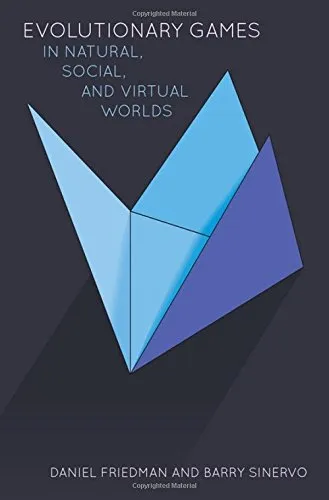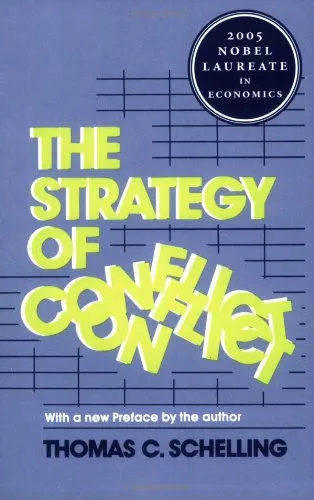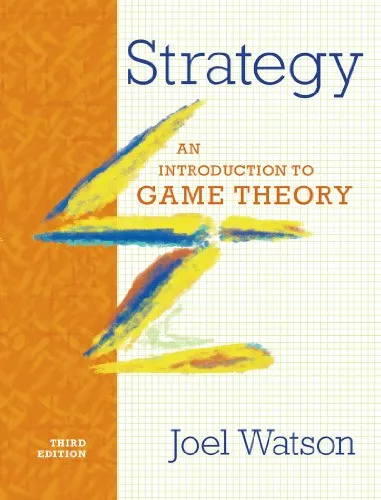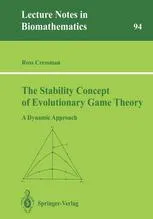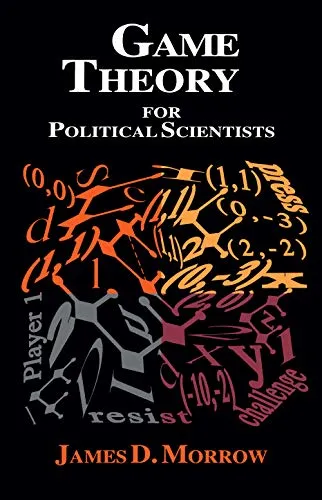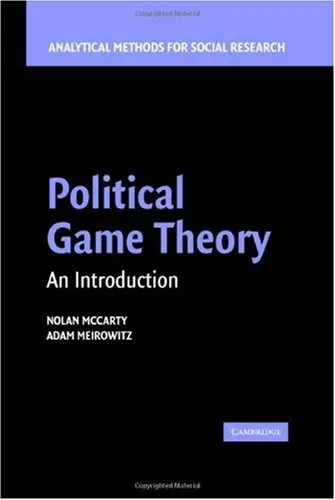Evolutionary games in natural, social, and virtual worlds
4.5
Reviews from our users

You Can Ask your questions from this book's AI after Login
Each download or ask from book AI costs 2 points. To earn more free points, please visit the Points Guide Page and complete some valuable actions.Related Refrences:
Introduction to "Evolutionary Games in Natural, Social, and Virtual Worlds"
"Evolutionary Games in Natural, Social, and Virtual Worlds" by Daniel Friedman and Barry Sinervo explores the profound interplay of evolutionary game theory principles with biological, societal, and technological systems. This groundbreaking book provides a unified framework to study how strategies evolve in various contexts, from animal behavior to human decision-making, and even within artificial virtual environments. By combining insights from biology, economics, psychology, and computational sciences, the authors present an insightful narrative on the mechanisms and dynamics that govern strategic interactions across different domains.
Detailed Summary of the Book
The book begins by introducing the core tenets of game theory, emphasizing its evolutionary applications. Unlike traditional economic models that assume perfectly rational agents, evolutionary game theory considers how strategies in populations adapt and shift over time in response to environmental and social pressures. This perspective is essential for understanding complex systems where optimization emerges from interactions rather than centralized control.
A significant portion of the text delves into natural systems, examining how evolutionary games play out in the animal kingdom. The authors discuss phenomena such as mating rituals, competition for resources, and predator-prey dynamics. Through elegant mathematical models and real-world examples, readers gain insights into how cooperation, competition, and conflict shape the biological world.
The book then transitions to the social realm, where evolutionary games shed light on human behavior. Topics such as altruism, trust, and social norms are explored, demonstrating how these traits can emerge and stabilize within communities. The authors also grapple with modern challenges, such as the evolution of cooperation in large-scale societies and the role of institutions in shaping behavior.
Finally, the book ventures into the virtual worlds of digital technology and artificial intelligence. Here, evolutionary gaming principles are applied to examine phenomena like online decision-making, algorithmic optimization, and even the evolution of AI systems. By considering the adaptive dynamics in these artificial environments, the authors offer novel insights into the future of human-computer interaction.
Key Takeaways
- Evolutionary game theory bridges the gap between individual decision-making and population-level outcomes.
- The framework is highly interdisciplinary, with applications in biology, economics, psychology, and computer science.
- Cooperation and competition are central themes, affecting life at every level—from the cellular to the societal.
- Virtual environments present unique opportunities to study and experiment with evolutionary games in real-time.
- Strategic interactions govern many of the systems surrounding us, offering rich opportunities for prediction and innovation.
Famous Quotes from the Book
"Adaptation is not an end goal; it is a continuous journey shaped by interactions across all scales of existence."
"In the domain of evolutionary games, there are no isolated players—every strategy echoes through the web of interactions."
"The digital age brings unparalleled opportunities to test and refine the principles of evolution in the virtual realm."
Why This Book Matters
"Evolutionary Games in Natural, Social, and Virtual Worlds" is a seminal work for anyone seeking to understand the interplay of strategy, adaptation, and evolution in complex systems. It is an invaluable resource for scholars, professionals, and curious minds across multiple disciplines. By uniting diverse perspectives under the common framework of evolutionary game theory, the book highlights the universality of strategic interaction in shaping our world.
Furthermore, the book emphasizes the practical applications of these principles in addressing real-world challenges. Whether it’s fostering cooperation in polarized societies, predicting ecological outcomes in the face of environmental change, or designing intelligent AI systems, this text equips readers with the tools and insights to make a meaningful impact.
In a rapidly changing world, the ability to understand and anticipate evolutionary dynamics is more crucial than ever, and this book serves as an indispensable guide. Its interdisciplinary scope ensures its relevance across fields, making it a must-read for aspiring leaders in science, technology, policy, and beyond.
Free Direct Download
You Can Download this book after Login
Accessing books through legal platforms and public libraries not only supports the rights of authors and publishers but also contributes to the sustainability of reading culture. Before downloading, please take a moment to consider these options.
Find this book on other platforms:
WorldCat helps you find books in libraries worldwide.
See ratings, reviews, and discussions on Goodreads.
Find and buy rare or used books on AbeBooks.
1404
بازدید4.5
امتیاز0
نظر98%
رضایتReviews:
4.5
Based on 0 users review
Questions & Answers
Ask questions about this book or help others by answering
No questions yet. Be the first to ask!
